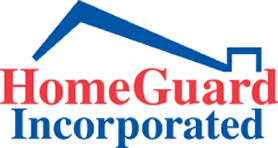When The Seller’s Disclosure States “Roof Leaked – Fixed,” What Does That Mean?

Details Can Make a Difference When it Comes to Home Inspection Reports & Disclosure
RHRC Legal Update #117
by David Hamerslough
Sometimes, the words that sellers use in their disclosure documents may create issues they never anticipated.
For example, a seller I recently represented used the words quoted in the title of this article. That seller was involved in a claim brought by the buyer when roof leaks recurred following the first rains after escrow closed.
Another example is the word “repaired.” Another seller I recently represented used that word in a chart that he had prepared as an attachment to his disclosures. One column of the chart identified conditions/issues from the home inspection report. The adjacent column in the seller’s chart then contained the word “repaired.”
The following are some of the issues that these words raised for these sellers.
When the first seller described above made the statement “roof leaked – fixed,” one of the issues raised by the buyer’s attorney was the lack of any details about either the leak or the “fix,” such as where did the roof leak, did water reach the interior of the residence, when did these events occur, what repairs were undertaken and by whom, what were their qualifications (e.g., were they licensed?), were permits required, obtained, and/or finaled, did the leaks recur (and, if so, where, when, to what degree, what work was again done), etc.? The importance of the arguments raised by the buyer’s attorney was that the seller’s lack of a detailed “disclosure” was inadequate and was designed to lead the buyer to conclude that the prior leak was minor and/or that the problem was permanently resolved.
Another problem for sellers when using terms such as “fixed” or “repaired” is whether sellers are expressing their opinion that these conditions/issues had not only been worked on but had been permanently resolved and would not recur. If so, what did the sellers base this opinion on (e.g., their own knowledge or that of a qualified professional)? If sellers are relying on a professional, was there any written warranty? Alternatively, are sellers relying on the fact that there had been no further problems or issues after the work was done? Disclosed opinions by sellers need to be reasonable in view of the details and history regarding the problem, work done, recurrence, and/or any existing conditions such as stains, feathered sheetrock, and/or water marks.
Irrespective of the “roof leaked – fixed” seller’s opinion or understanding, did his use of the word “fixed” suggest or convey that the condition/issue was permanently resolved and would not recur? Although the word “repaired” does not necessarily convey the same level of permanency that the word “fixed” tends to convey, sellers need to understand that using such short explanations can be problematic and may mislead buyers.
Lack of details was also problematic for the second seller, who used the word “repaired.” In addition to the issues identified above, his chart was unclear with respect to precisely which conditions/issues in the home inspection report had been worked on. The chart referred to sections and pages in the report without indicating if all of the conditions/issues in those sections or pages had been worked on or just some of them. The chart may have appeared to be a good disclosure technique, but lack of specificity was still an issue.
While some sellers who have used words such as “fixed” or “repaired” may have honestly believed that the condition/issue they disclosed was permanently resolved and would not recur, other sellers may have never understood, much less intended to convey to a buyer, that a condition/issue was permanently resolved when they used those terms in completing the disclosure forms.
On the other hand, how many buyers have reasonably interpreted words such as “fixed” or “repaired” not as an opinion on the part of a seller but as an affirmation of a fact by that seller? From the perspective of some buyers, a seller using these words MAY have just erroneously assured them that there will be no problems in the future.
While the law recognizes a distinction between an opinion and a statement of fact, predicting how a trier of fact will make that determination can be challenging. Generally, the decision will turn on a number of factors, including but not limited to not only the words that were used but also their context, the factual history of events, observations, findings, recommendations, etc. made in inspection reports, agent disclosures, advisories, and other transactional documents, the knowledge, training, skill, and experience of the buyer, seller, agents, and other professionals, the questions that were asked, the responses provided to those questions, whether a party’s actions and/or statements were consistent or inconsistent with the interpretation/understanding that they are claiming, the discussions and/or advice, if any, that the seller and/or buyer received regarding the disclosures, market conditions, the motivations of the parties, etc.
While the use of words such as “fixed” and “repaired” can raise issues like those discussed in this article and the outcome of any later dispute can be challenging to predict, one consequence of not making fully completed disclosures is much easier to identify and predict: it can be very costly for everyone involved.
When there are disputes involving the condition of the property, the cases focus on whether the sellers fully disclosed all known material facts, whether the buyer reasonably and justifiably relied upon those disclosures, and whether these events caused a buyer to sustain legally recoverable damages; these cases result in time-consuming and costly arbitration and/or litigation. These legal actions cause buyers and sellers to spend money on attorneys’ fees and costs, and, regardless of the result, the process of being involved in claims can be very stressful, because there is always risk in how the case will ultimately be resolved.
Arbitration or litigation between buyers and sellers frequently brings the real estate licensees into the dispute. The claims made against the licensees include but are not limited to their review of the disclosures, inspection reports, and other transactional documentation, what inquiry if any they made regarding these subjects, the advice and counsel they then provided their clients, and all of the other facts and circumstances that determine whether a real estate licensee met the standard of care or their fiduciary obligations to their clients.
Use of clear and precise language in disclosures is critical for sellers. Sellers should be encouraged to provide as much detail as possible regarding any past problems, as well as any work that has been done on the property. The explanations that a seller is asked to provide in the PRDS Supplemental Seller’s Checklist (SSC) are intended to have the seller supply such details. This aspect of the form is one of the things that distinguish it from the C.A.R. Seller Property Questionnaire (SPQ).
To the extent that sellers believe past problems have been resolved, sellers should explain why they have that belief and, preferably, make it clear that they cannot confirm whether or not the problem has been permanently resolved. Sellers should recognize that it is in their best interests to fully explain their disclosures and that they need to take the time to review all of their documents and provide all of the relevant information to buyers about the condition of the property. Failure to do so can result in legal actions that will be far more time-consuming and costly than the disclosure process.
Buyers should also consider requesting additional details about prior problems and the efforts that have been made to resolve those problems. One reason for this is that the reasonableness of the buyers’ reliance on the sellers’ terminology is often a critical factor in these cases.
About David Hammerslough
In his 40 years of practice, Dave Hamerslough has litigated and arbitrated residential and commercial real estate disputes on behalf of brokers and agents, buyers and sellers, and landlords and tenants. He teaches courses and writes articles on these subjects for brokers, agents, attorneys, and consumers. Dave also acts as mediator and arbitrator of real estate disputes. He is admitted to practice in all California courts.
About HomeGuard Incorporated – Home, Roof, & Termite Inspections in California
HomeGuard Incorporated performs tens of thousands of termite, home and roof inspections yearly serving Northern and Southern California realtors and homeowners. Our fast, friendly service, ease of ordering and flexible scheduling options are just a few things that set us apart from our competitors. If you’re in need of inspections or natural hazard disclosure reports from the Bay Area and Central Valley to San Diego we can help. Call (855) 331-1900 or contact us today!




